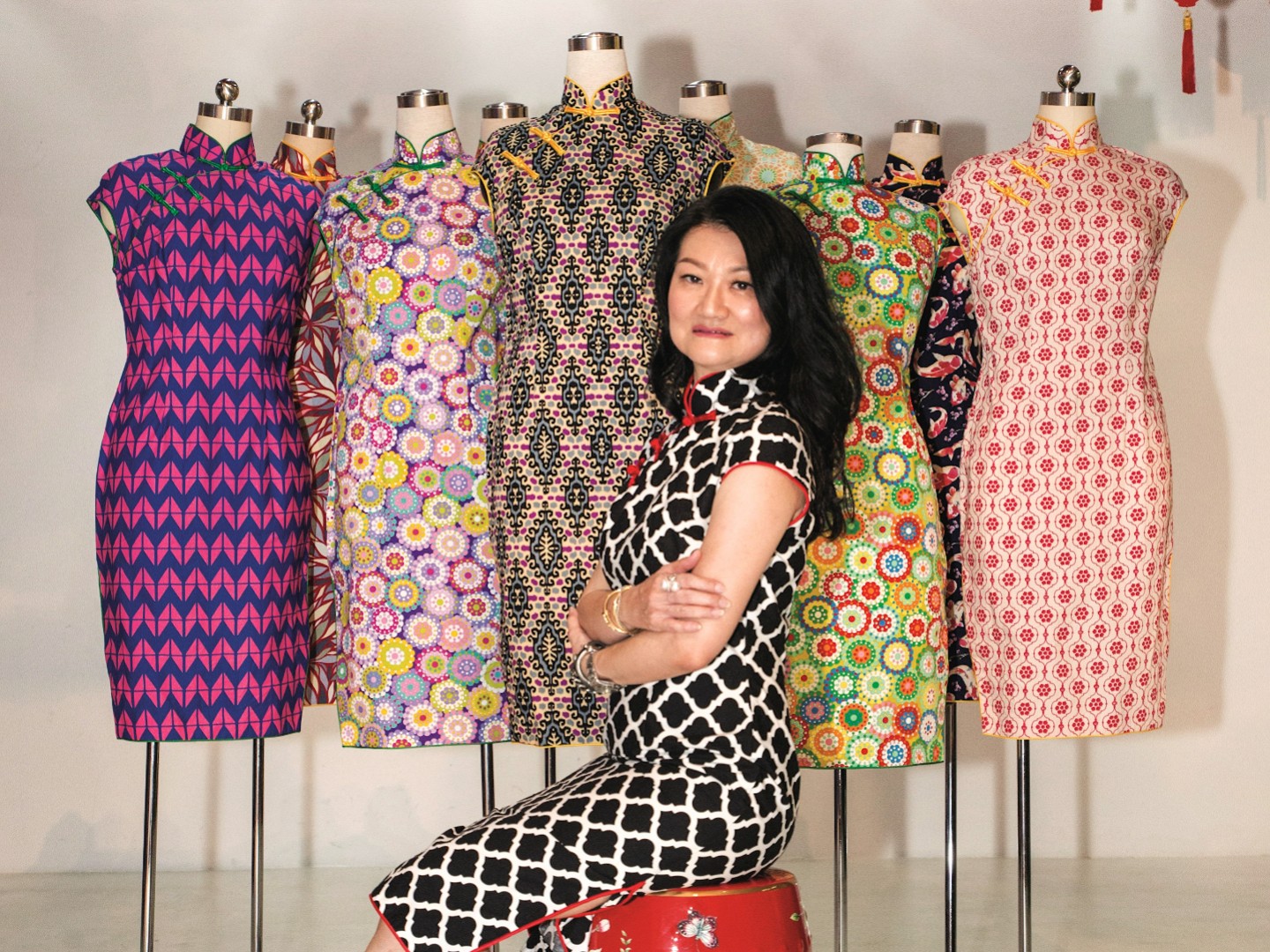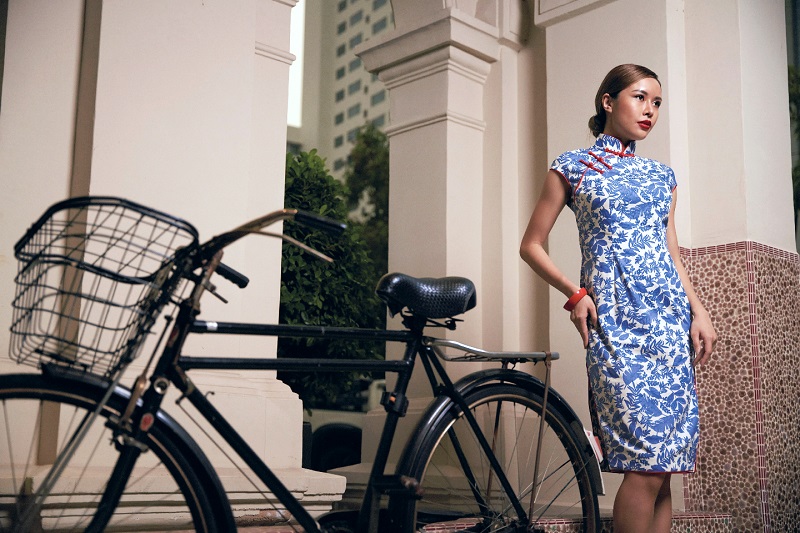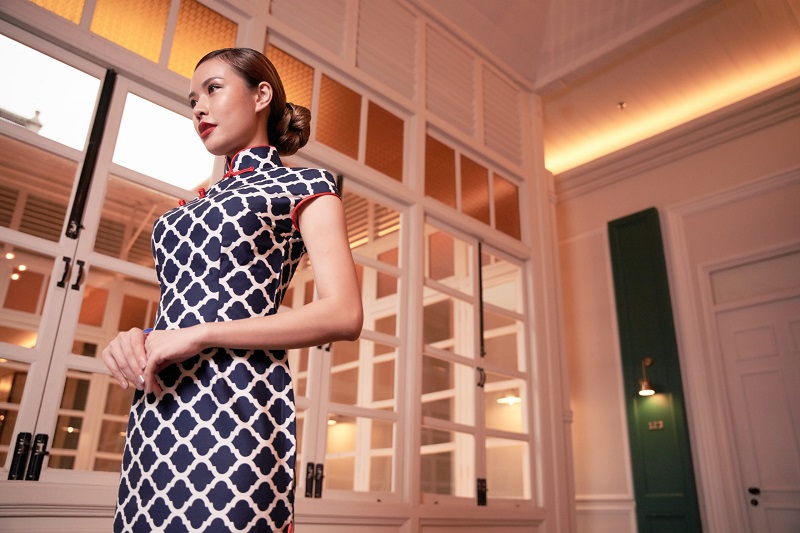
Neoh had a long history with style and fashion before starting the brand (All photos: +sukha)
Back in the day, the qipao, or cheongsam in Cantonese, was only worn by Chinese women for special occasions such as weddings or festive celebrations. Today, however, the world without borders that we live in welcomes women of all races to dress themselves in traditional attire to honour its beauty and origin. On top of that, the tight-fitting dresses are embraced as an everyday outfit.
Having immense appreciation for the traditional wear, Neoh Su Ling, founder of homegrown fashion label +sukha, decided to launch a collection. The idea was sparked during a discussion over a dim sum breakfast last October. “We have an obsession with cheongsam. We love cheongsams. We wear cheongsams even when it is not Chinese New Year,” she says. In December, +sukha unveiled its first collection of qipao at Shangri-La Kuala Lumpur before selling it on a dedicated website.
Like other enterprises, Neoh’s core business, which is event management, could not avoid the inevitable losses due to the pandemic. +sukha acts as a creative outlet for Neoh and team, apart from providing opportunities to Malaysians affected by retrenchments and pay cuts. “We needed something fun to do. We also wanted to give jobs to tailors and seamstresses who lost their income during the pandemic.”
photo_dec_10_12_15_45_am.jpg

She was in a time crunch to churn out +sukha, so she had a hard time deciding the very thing that makes a brand — its name and logo. “Coming up with a name for the label was the toughest thing to do. After that, I had to design the logo.”
Luckily for Neoh, she had a group of supportive and talented friends to help her with the brand. Photoshoots, videos, sourcing, music production, logo design, printing, website — almost everything was done in-house with the support of her friends in the business.
“It was great to have friends in the advertising industry to bounce ideas with. These same friends had to look at 20 logo renditions to give me feedback on the ones they liked best.”
Bright colours are meant to boost the mood and that is exactly the direction +sukha headed in with its first collection. The palettes and patterns of its qipao are luxuriously vibrant. “Festive wear should always be fun. This is our first foray into fashion. We wanted something bright and colourful to bring everyone out from the doom and gloom of the ongoing pandemic, on top of the comfortable pieces that you can wear during Chinese New Year.”
img_7823-scaled.jpg

Apart from the colourful aesthetic, the design process considered comfort as the most important criteria. While the whole idea of dressing up during festivities is to look stunning, it can still be done with convenience and simplicity. The pandemic made Neoh take a complete 360° look and feel about fashion. She used to chase the newest and latest in trends. But now, she is happy to get reacquainted with what she already has in her wardrobe, saying, “Fashion has to be all about comfort.
“We have chosen comfortable fabric — pure cotton — and a good forgiving qipao cut. The design is cut in such a way that it hides your tummy. So it’s perfect for all the extra makan sessions we tend to have during Chinese New Year. Of course, the outfit will crease a bit, but I think the comfort level takes precedence.”
Neoh also made a point to bring messages of hope and justice through her creations. Her current favourite piece, named +pink arrows+ has many symbolic meanings. “In its simplest form, the sharp-tip arrowhead becomes a string of pink triangle prints pointing on blue, signifying peace and serving as a symbolic reminder of the Pink Triangle movement to liberate the suppressed LGBTQ community, nurture solidarity and fight social injustice. Wear our +pink arrows+ with conviction and spread the message of peace and love.”
Neoh had a long history with style and fashion before starting the brand. Travelling to places had widened her horizons and a visit to Coco Chanel’s apartment at 31 Rue Cambon in Paris is one of the memories she holds dear to her heart until today. “It was a dream come true to visit her apartment. More so when I am a huge Chanel fan. Almost every single piece of furniture and decor inside her mansion became a source of inspiration. It was a great learning experience to see how she translated those items into fashion pieces such as bags, clothes and jewellery.”
Sukha, a Sanskrit word, represents happiness, bliss, joy and pleasure. It also sounds like the term suka in Malay, which means “like”. The brand now hopes to bring the feeling of “sukha” to customers with its upcoming resort and Raya collections while taking into account demand from customers who like made-to-measure pieces.
This article first appeared on Jan 31, 2022 in The Edge Malaysia.


